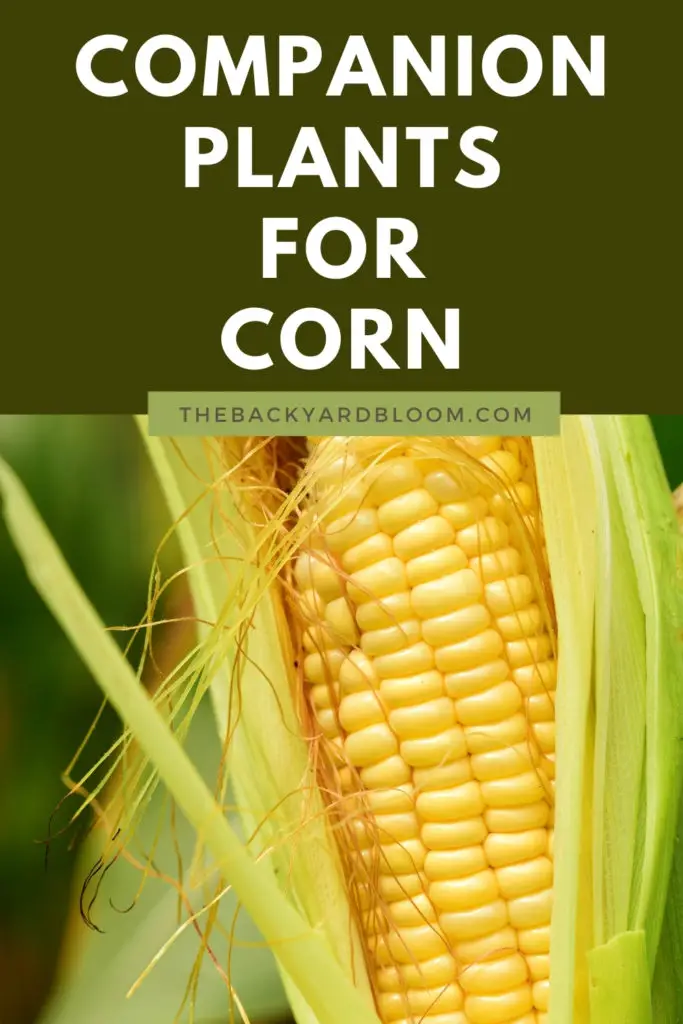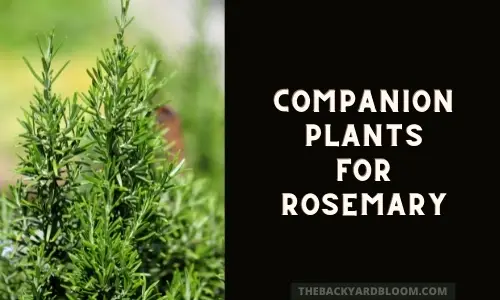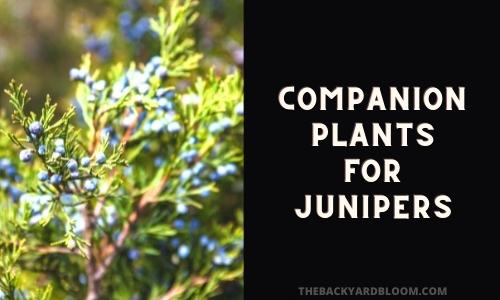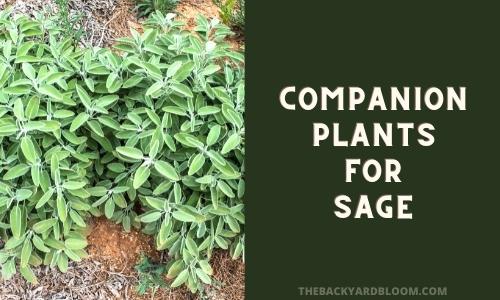Please note that this post may contain affiliate links. You can read my full affiliate disclosure at the bottom of the page.
Corn is one of the most famous crops for companion planting. Corn is one of the crops used in the companion plant combo called the Three Sisters. Native Americans planted corn, pole beans, and winter squash together in order to gain benefits from each of the crops to help all three of them thrive. But companion planting for corn can go beyond just those 3 crops.
In this post we go over companion plants for corn in the garden and what not to plant with corn.
Why should you use companion plants for corn?
By using companion plants for corn you can do the following for your corn crop.
- Help attract beneficial insects
- Repel and deter unwanted pests and insects
- Create beneficial ground cover
- Add important nutrients like nitrogen to the soil
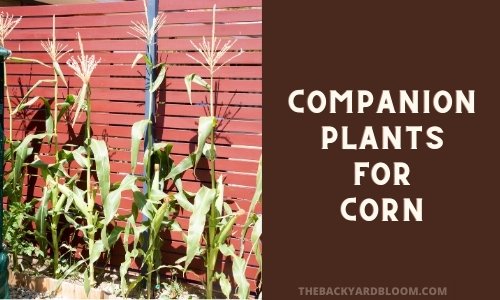
Good Companion Plants for Corn
- Basil
- Borage
- Cucumbers
- Dill
- Lettuce
- Marigolds
- Melons
- Mint
- Hyssop
- Sage
- Nasturtiums
- Parsley
- Peas
- Pole Beans
- Bush Beans
- Peppers
- Potatoes
- Pumpkins
- Sunflowers
- Thyme
- Winter Squash
Basil will help deter maize weevils when the leaves fall and dry around the corn. You can also plant basil around your corn as a border to help deter maize weevils.
Related Reading: Companion Plants for Basil
Cucumber vines can use the corn for support, and their prickly vines can deter pests from the corn it’s growing near.
Borage will help attract beneficial insects to help with pollination and they will also help keep pests away from growing corn.
Dill attracts pollinators and other beneficial insects.
Lettuce can benefit from corn by taking advantage of the shade corn casts with it’s long stalks. Find other companion plants for lettuce here.
Marigolds and Nasturtiums help keep unwanted pests, like aphids, away from corn crops. Marigolds are work best as a companion plant when planted as a border to your companion crop. Find out what else makes good companion plants for marigolds here.
Melons grow as a vine. When the vine grows along the ground it can help be a ground cover that can keep moisture in the soil and help prevent weeds from growing where your corn is growing.
Mint, Hyssop, and Sage will repel animals that could graze on your crops, like deer. Grazing deer can be detrimental to a corn crop.
Parsley can help bring beneficial insects to the garden to help control pests like earworms and cutworms.
Pole Beans are a mutually beneficial companion plant for corn. The beans will help add nitrogen to the soil. The pole beans can benefit from being planted with corn because they can use the stalks as support. This can take away the need to build a trellis or other type of support for the beans.
Related Reading: Companion Plants for Green Beans
Bush Beans won’t benefit from using corn as a trellis, but they can still provide extra nitrogen to the soil to give your corn a steady amount of nitrogen that it needs to grow well.
Related Reading: Different Types of Green Beans You Can Grow In The Garden
Peas are another type of legume that will add nitrogen to the soil.
Peppers (both hot peppers and bell peppers) can benefit from being planted near corn because corn can provide protection from the wind.
Related Reading: Companion Plants for Bell Peppers
Potatoes gain the most benefit when being used for a companion plant with corn by helping protect the potato plants from wilt. Find other companion plants for potatoes here.
Sunflowers when planted near corn can help attract beneficial insects that will kill unwanted insects.
Thyme can keep earworms away from your corn crop.
Winter Squash act as a natural mulch by providing ground cover. Like melons, winter squash can help keep moisture in the soil. Another benefit to planting winter squash with corn is that the vines are prickly and can deter pests from getting to the corn crop.
What Not To Plant With Corn
- Cabbage
- Celery
- Broccoli
- Brussels Sprouts
- Cauliflower
- Kale
- Kohlrabi
- Eggplant
- Fennel
- Swiss Chard
- Tomatoes
Broccoli, Brussels Sprouts, Cabbage, Cauliflower, and Kale don’t do well when planted with corn because corn casts too much shade for these crops to grow well. These crops are also what is called a heavy feeder, this means that they need a lot of nutrients and would take those away from the corn if they were growing next to each other.
Related Reading: Companion Plants for Kale
Tomatoes can attract earworms and hornworms. Having tomatoes planted with corn can cause even more of these pests to be attracted to your crop, so it’s best to keep these two crops in separate areas of your garden. Find good companion plants for tomatoes here.
Eggplant can also attract hornworms. Eggplant is also a heavy feeder, which will compete for nutrients in the soil. Find good companion plants for eggplant here.
Fennel can inhibit the growth of most crops if it’s planted with them, so fennel is best to be planted alone.
